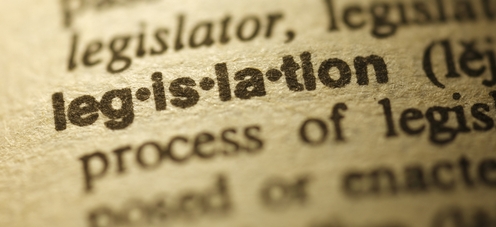Bankruptcy (Amendment) Act 2015
In order to streamline Ireland’s bankruptcy legislation with neighbouring jurisdictions the Bankruptcy (Amendment) Act 2015 (“the Act”) was signed into law on the 25th December 2015. The Act provides for several changes to the rules on bankruptcy amending the Bankruptcy Act 1988 in a number of key respects in an attempt to resolve the huge insolvency overhang in Ireland. It includes the following key provisions which came into effect on the 26th January 2016:
- Reduces the normal duration of bankruptcy from 3 years to 1 year (up to December 2013 it was 12 years).
- Automatically re-vests the home in the discharged bankrupt after 3 years (subject to any outstanding mortgage) unless the Official Assignee has sold it (or applied for a Court order to do so) or the Court orders that the home should not re-vest in the bankrupt or orders that the 3 year period be extended.
- Reduces the maximum duration of Bankruptcy Payment Orders from 5 years to 3 years, except in cases of non-cooperation or concealment of assets.
- Extends the duration of bankruptcy in cases of non-cooperation or concealment.
- Existing bankruptcies will, subject to a 6 month transition period, receive the benefit of the new changes.
- Removes the outdated requirement for an additional sitting of the High Court after bankruptcy adjudication.
Other notable changes are as follows:
- Onerous property: The Official Assignee’s power to disclaim onerous property has been extended. Previously, it was regarded as only covering leases. Now, it covers all property and is capable of being exercised (with leave of the Court) at any time, rather than within 12 months of the adjudication or such extended time as the Court may agree.
- Term extensions in certain cases.
- Bankruptcy:
- 8 years: The High Court continues to have the power to extend the bankruptcy term to 8 years where it is satisfied that a bankrupt has failed to cooperate with the Official Assignee in the realisation of his assets or has failed to disclose income or assets that could be realised for the benefit of his creditors from the Official Assignee (or failed to disclose their existence to the Official Assignee).
- 15 years: The High Court has been given the power to extend the bankruptcy term to 15 years where it views the bankrupt’s failure to cooperate or failure to disclose assets as particularly serious.
- Bankruptcy:
- Bankruptcy Payment Order: While the standard duration of a Bankruptcy Payment Order has been reduced to 3 years if the Court extends the term of the bankruptcy it can also extend the term of a related Bankruptcy Payment Order to 5 years.
- Books and Records: The Act amends the existing Bankruptcy Act 1988 to confirm that both electronic and paper records are subject to the powers of both the Court and the Official Assignee to demand accounts and records for the purposes of investigating a bankrupt’s affairs.
The modernisation the Irish Bankruptcy regime by reducing the bankruptcy term to the 1 year terms available in other jurisdictions should serve to reduce instances of “bankruptcy tourism”. The changes introduced should also encourage more debt settlements outside of formal proceedings as the borrower’s threat of bankruptcy now has more commercial reality and should be taken seriously by the banks. It is anticipated that this will lead to a swifter resolution of the large number of arrears cases still sitting on the balance sheets of Irish banks.
The changes to the regulatory framework for bankruptcy introduced by the 2015 Act follow the recent amendments to the regulatory framework for personal insolvency introduced by the Personal Insolvency (Amendment) Act 2015. Among other things these recent amendments sought to increase the use of personal insolvency arrangements (“PIA”) by removing the so called bank veto where the proposed PIA includes a debt secured on the debtor’s principle private residence. The Insolvency Service of Ireland has already reported a 26% increase in new applications for PIAs in Q1 2016.
The Act is balanced in its approach in that it assists cooperative debtors while also providing sanctions with significantly extended terms where debtors seek to abuse the process. Consequently future attempts by Irish Citizens to declare bankruptcy in other jurisdictions may in certain cases be cause for suspicion amongst creditors.
The changes implemented by the 2015 Act represent a fundamental shift in the objective of the law from being a pro-creditor means of collection to being a more pro–debtor means of reform which aims to promote general economic recovery and to bring Irish bankruptcy law into line with other EU member states. It is certainly welcome news for bankrupts and those debtors considering the bankruptcy process.
Further Information
Sarah Coughlan sco@ofx.ie, 021 4277788

